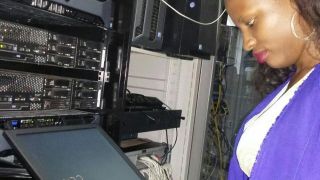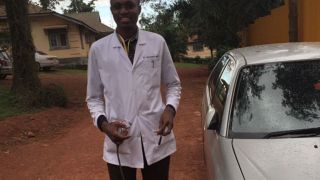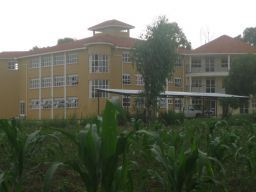From urban centers to remote corners of Earth, the depths of the oceans to space, humanity has always sought to transcend barriers, overcome challenges, and create opportunities that improve life in our part of the universe.
In the last century alone, many GREAT ENGINEERING ACHIEVEMENTS became so commonplace that we now take them mostly for granted. Technology allows an abundant supply of food and safe drinking water for much of the world. We rely on electricity for many of our daily activities.
We can travel the globe with relative ease, and bring goods and services wherever they are needed. Growing computer and communications technologies are opening up vast stores of knowledge and entertainment. As remarkable as these engineering achievements are, certainly just as many more great challenges and opportunities remain to be realized. While some seem clear, many others are indistinct and many more surely lie beyond most of our imaginations.
 A growing appreciation of individual preferences and aptitudes has led toward more “personalized learning,” in which instruction is tailored to a student’s individual needs. Given the diversity of individual preferences, and the complexity of each human brain, developing teaching methods that optimize learning will require engineering solutions of the future.
A growing appreciation of individual preferences and aptitudes has led toward more “personalized learning,” in which instruction is tailored to a student’s individual needs. Given the diversity of individual preferences, and the complexity of each human brain, developing teaching methods that optimize learning will require engineering solutions of the future.
 Currently, solar energy provides less than 1 percent of the world's total energy, but it has the potential to provide much, much more.
Currently, solar energy provides less than 1 percent of the world's total energy, but it has the potential to provide much, much more.
 Within many specialized fields, from psychiatry to education, virtual reality is becoming a powerful new tool for training practitioners and treating patients, in addition to its growing use in various forms of entertainment.
Within many specialized fields, from psychiatry to education, virtual reality is becoming a powerful new tool for training practitioners and treating patients, in addition to its growing use in various forms of entertainment.
 A lot of research has been focused on creating thinking machines—computers capable of emulating human intelligence— however, reverse-engineering the brain could have multiple impacts that go far beyond artificial intelligence and will promise great advances in health care, manufacturing, and communication.
A lot of research has been focused on creating thinking machines—computers capable of emulating human intelligence— however, reverse-engineering the brain could have multiple impacts that go far beyond artificial intelligence and will promise great advances in health care, manufacturing, and communication.
 Engineering can enable the development of new systems to use genetic information, sense small changes in the body, assess new drugs, and deliver vaccines to provide health care directly tailored to each person.
Engineering can enable the development of new systems to use genetic information, sense small changes in the body, assess new drugs, and deliver vaccines to provide health care directly tailored to each person.
 As computers have become available for all aspects of human endeavors, there is now a consensus that a systematic approach to health informatics - the acquisition, management, and use of information in health - can greatly enhance the quality and efficiency of medical care and the response to widespread public health emergencies.
As computers have become available for all aspects of human endeavors, there is now a consensus that a systematic approach to health informatics - the acquisition, management, and use of information in health - can greatly enhance the quality and efficiency of medical care and the response to widespread public health emergencies.
RESTORE AND IMPROVE URBAN INFRASTRUCTURE
 Infrastructure is the combination of fundamental systems that support a community, region, or country. Society faces the formidable challenge of modernizing the fundamental structures that will support our civilization in centuries ahead.
Infrastructure is the combination of fundamental systems that support a community, region, or country. Society faces the formidable challenge of modernizing the fundamental structures that will support our civilization in centuries ahead.
 Computer systems are involved in the management of almost all areas of our lives; from electronic communications, and data systems, to controlling traffic lights to routing airplanes. It is clear that engineering needs to develop innovations for addressing a long list of cybersecurity priorities
Computer systems are involved in the management of almost all areas of our lives; from electronic communications, and data systems, to controlling traffic lights to routing airplanes. It is clear that engineering needs to develop innovations for addressing a long list of cybersecurity priorities
 The world's water supplies are facing new threats; affordable, advanced technologies could make a difference for millions of people around the world.
The world's water supplies are facing new threats; affordable, advanced technologies could make a difference for millions of people around the world.
 Human-engineered fusion has been demonstrated on a small scale. The challenge is to scale up the process to commercial proportions, in an efficient, economical, and environmentally benign way.
Human-engineered fusion has been demonstrated on a small scale. The challenge is to scale up the process to commercial proportions, in an efficient, economical, and environmentally benign way.
 The need for technologies to prevent and respond to a nuclear attack is growing.
The need for technologies to prevent and respond to a nuclear attack is growing.
 Engineers can help restore balance to the nitrogen cycle with better fertilization technologies and by capturing and recycling waste.
Engineers can help restore balance to the nitrogen cycle with better fertilization technologies and by capturing and recycling waste.
DEVELOP CARBON SEQUESTRATION METHODS
 Engineers are working on ways to capture and store excess carbon dioxide to prevent global warming.
Engineers are working on ways to capture and store excess carbon dioxide to prevent global warming.
ENGINEER THE TOOLS OF SCIENTIFIC DISCOVERY
 In the century ahead, engineers will continue to be partners with scientists in the great quest for understanding many unanswered questions of nature.
In the century ahead, engineers will continue to be partners with scientists in the great quest for understanding many unanswered questions of nature.
Heroism arises amidst challenges as necessity will always be the mother of inventions, for a current student and a future engineering student, challenges listed above await your contribution in solving so as you learn in class, see how you can use that Biology to combat climate change and come up with better medicines, that Physics to create energy from fusion, that Mathematics to secure our cyber space for the world will reward you publically for what you spent hours developing in private
To the future and current student, the world awaits your special touch
























